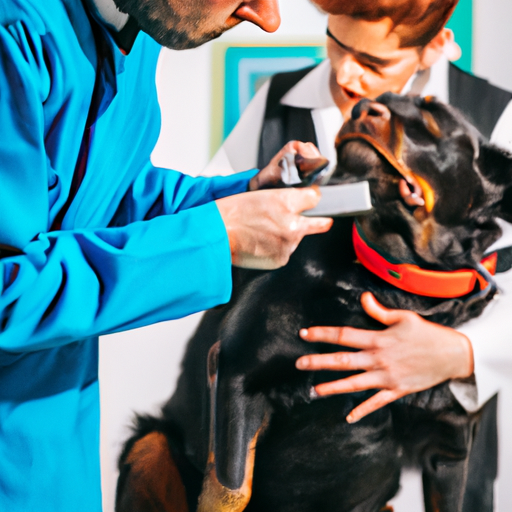As a caregiver to your beloved canine companion, you may sometimes notice changes in their health that leaves you worried. One such change is the development of black gums. But don’t fret. This guide will help you understand why this happens and how you can help your furry friend regain their healthy smile.
Understanding the Causes of Black Gums
Before we dive into the solution, it’s important to understand the root cause. Black gums in dogs can occur due to several reasons:
-
Breed and Genetics: Certain dog breeds naturally have black or spotted gums due to their genetics. For instance, breeds like the Chow Chow and the Shar Pei are known for this characteristic.
-
Oral Disease: Oral diseases like periodontal disease or gum infections can cause your dog’s gums to turn black.
-
Medications: Some medications can cause pigmentation changes in your dog’s gums.
-
Ageing: Just like humans, dogs can develop pigmentation changes as they age.
Checking for Underlying Health Issues
If your dog’s gums are turning black and it’s not due to their breed or age, it’s crucial to get a professional opinion. A vet can help rule out any underlying health issues.
- Schedule a vet appointment.
- Have your vet perform a complete oral examination.
- Follow through with any recommended tests or treatments.
Caring for Your Dog’s Dental Health
Preventive care is better than cure. Regular dental care can help prevent gum disease and other issues that can lead to black gums.
- Brush your dog’s teeth daily using a dog-specific toothpaste.
- Provide dental chews that clean your dog’s teeth as they chew.
- Regularly check your dog’s mouth for any signs of disease or changes in color.
Changing Your Dog’s Diet
A balanced diet can also contribute to your dog’s overall dental health.
- Opt for high-quality dog food that supports dental health.
- Consider adding dental supplements to your dog’s diet.
- Provide fresh water for your dog at all times to help rinse away food particles.
Seeking Professional Dental Cleaning
Professional dental cleaning can help remove plaque and tartar that brushing alone cannot.
- Schedule regular dental cleanings with your vet.
- Follow your vet’s advice on how often your dog needs a professional cleaning.
Frequently Asked Questions
Q1: Can black gums in dogs be reversed?
A: Depending on the cause, black gums caused by disease or poor dental hygiene can be reversed with proper care.
Q2: How often should I brush my dog’s teeth?
A: Ideally, you should brush your dog’s teeth daily. If that’s not possible, aim for at least three times a week.
Q3: How often does my dog need professional dental cleanings?
A: The frequency depends on your dog’s overall dental health. Your vet can provide the best recommendation.
Q4: Can my dog’s diet affect their gum color?
A: Yes, a poor diet can contribute to dental issues which can in turn cause changes in gum color.
Q5: Are black gums in dogs always a cause for concern?
A: Not always. Some dogs naturally have black gums. However, sudden changes should always be checked by a vet.



